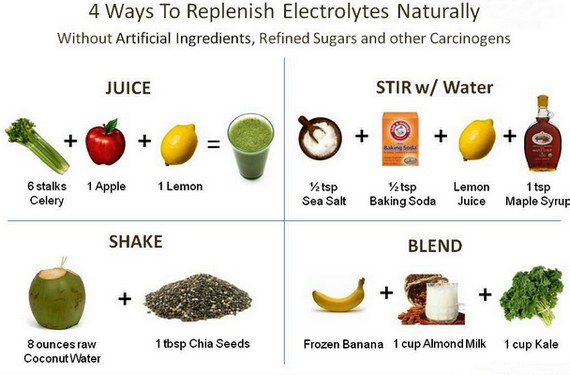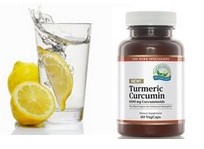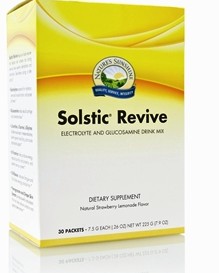

Electrolytes are salts in the body that conduct electricity and are found in the body fluid, tissue, and blood. Examples are chloride, calcium, magnesium, sodium, and potassium. Sodium (Na+) is concentrated in the extracellular fluid between tissue cells and potassium (K+) is concentrated in the intracellular fluid within the blood vessels. Proper balance is essential for muscle coordination, heart function, fluid absorption and excretion, nerve function, and concentration.
The kidneys regulate fluid absorption and excretion and maintain a narrow range of electrolyte fluctuation. Normally, sodium and potassium are filtered and excreted in the urine and feces according to the body’s needs. Too much or too little sodium or potassium, caused by poor diet, dehydration, medication, and disease, results in an imbalance.Both the amount of water and the concentration of electrolytes are important to bodily functions. When the body is “in fluid balance†it means that the various body compartments (cells, tissues, organs) contain the required amount of fluids to carry out normal bodily functions. Fluid balance and electrolyte balance are inseparable. In a healthy individual, the volume of fluid in each compartment remains stable.
The chemical elements of electrolytes are sodium, chloride, potassium, calcium, phosphate and magnesium. Loss of electrolytes can have serious consequences for the body. In severe dehydration, the loss of electrolytes can result in circulatory problems such as tachycardia (rapid heart beat) and problems with the nervous system such as loss of consciousness and shock.
Electrolytes Serve Three General Functions
1. Electrolytes are needed for normal metabolism. Many electrolytes are essential minerals, some organic and some inorganic. Acids, bases and salts are electrolytes. They are called electrolytes because they can conduct electric currents. Acids (proton donors) and bases (proton acceptors) react to one another to form salts in the body.
2. Electrolytes are needed for proper fluid movement between compartments (from cell to cell, from tissue to tissue, and from organ to organ). The walls of compartments are semipermeable. Through osmosis, fluids are in constant movement from one compartment to another within fractions of a second. The concentration (and the nature) of the solutes in the fluids are a major determinant of fluid balance.
3. Electrolytes help maintain the acid-base (Alkalinity) balance required for normal cellular activities.
In a healthy person pH is between 6.4 and 7.00.
Homeostasis of this range is essential to survival and depends on three major mechanisms in the body:
1) Buffer systems, which work within fractions of a second to prevent drastic changes in body fluid pH.
2) Respirations, which can increase or decrease pH levels within 1-3 minutes.
3) Kidney excretions.
Electrolyte Loss
Loss of Electrolytes can occur through long term laxative use and use of diuretic medications. It can also result from vomiting, diarrhea and any form of water loss that results in dehydration. Sodium can also be lost through excessive perspiration and burns.
Potassium can also be lost through high sodium (salt) intake and kidney disease.
The specific chemical elements of electrolytes and consequences from their loss are described below.

Chemical Elements of Electrolytes
Sodium is necessary for nerve impulse transmission, muscular contraction and fluid and electrolyte balance. Sodium level in the blood is controlled by aldosterone. Hyponatremia, a lower than normal blood sodium level, is characterized by muscular weakness, headache, hypotension, tachycardia, and circulatory shock. Severe hyponatremia can result in mental confusion, stupor and coma.
Chloride can easily diffuse between extracellular and intracellular compartments. This makes chloride important in regulating osmotic pressure differences between compartments. Chloride level is indirectly controlled by aldosterone.
Hypochloremia, an abnormally low level of chloride in the blood, results in muscle spasms, alkalosis, depressed respirations, and coma.
Potassium helps to maintain fluid volume in cells and regulates pH.
Potassium has an important role in nerve impulse conduction and muscle contraction. Potassium level is controlled by aldosterone.
Hypokalermia, loss of potassium, results in cramps and fatigue, flaccid paralysis, mental confusion, increased urine output, shallow respirations, and changes in the electrocardiogram.
Calcium and Phosphate are stored in the bones and teeth and released when needed. Calcium and phosphate are structural components of bones and teeth. Calcium required for blood clotting, chemical transmitter release, muscle contraction and normal heartbeat. Phosphate is necessary for the formation of nucleic acids, the synthesis of high energy compounds and buffering reactions. Calcium and phosphate levels in the blood are regulated by several hormones.
Magnesium is important for the sodium-potassium pump which controls the volume of the cells.
Without the function of this pump, most cells of the body would swell until they burst. The pump activates enzyme systems needed to produce cellular energy. It is the basis of nerve function to transmit signals throughout the nervous system. Magnesium levels are regulated by aldosterone.
Hypomagnesemia, magnesium loss, results in increased neuromuscular and nervous system irritability leading to tremor, tetany, and possibly convulsions.
Loss of magnesium through diuretic use can result in cardiac arrhythmias.
Mild forms of electrolyte disorders may not cause any symptoms. Such disorders can go undetected until they are discovered during a routine blood test. Symptoms usually start to appear once a particular disorder becomes more severe.
Not all electrolyte imbalances cause the same symptoms, but many share similar symptoms.
Common symptoms of an electrolyte disorder include:
Call your health professional right away if you are experiencing any of these symptoms and suspect you might have an electrolyte disorder. Electrolyte disturbances can become life-threatening if left untreated.
Replenishing your Electrolytes... naturally.
The Curcumin and Lemon Morning Boost (Organic lemons help to replenish electrolytes and the body's natural minerals.)
 Drink lemon water on a regular basis, it will decrease the acidity in your body, which is where disease states occur.
Drink lemon water on a regular basis, it will decrease the acidity in your body, which is where disease states occur.
It removes uric acid in your joints, which is one of the main causes of inflammation.
About Curcumin
According to a review study published in the AAPS Journal (2013), curcumin has shown therapeutic potential against a number of human diseases, including multiple types of cancer, inflammatory bowel disease, irritable bowel syndrome, arthritis, peptic ulcers, psoriasis, H. pylori infection, Alzheimer's disease, acute coronary syndrome, atherosclerosis, diabetes, and respiratory tract infections.
Soltic Revive: Electrolytes & Glucosamine Drink Mix
 Benefits:
Benefits:
** Replaces electrolytes lost through exercise or stress.
** Supports the structural system.
** Provides amino acids for muscular support.
** Boosts energy and endurance.
** Helps maintain joint health.
Solstic Revive [Energy & Fitness] replaces vital nutrients including calcium, magnesium, sodium and potassium lost during exercise, stress, exertion, dehydration and malnutrition.
Revive is perfect for before, during and after any strenuous activity or as a refreshing beverage anytime throughout the day. Solstic Revive also contains 500 mg glucosamine per serving to help support joint and cartilage health plus l-carnitine, l-taurine, l-glycine, B vitamins, d-ribose, and extracts of pomegranate and grape skin.
Empty the contents of one Solstic Revive packet into 16 oz. of cold water, shake and enjoy! Ideal for mixing in bottled water or any container that you can close and shake.
This information is for educational purposes only. Consult with a qualified health practictioner for all serious or persistant illness. Copyright 1999 by Robinson & Horne, L.C., This material may be duplicated for educational purposes only (not for resale) provided it is not altered in any way.
|